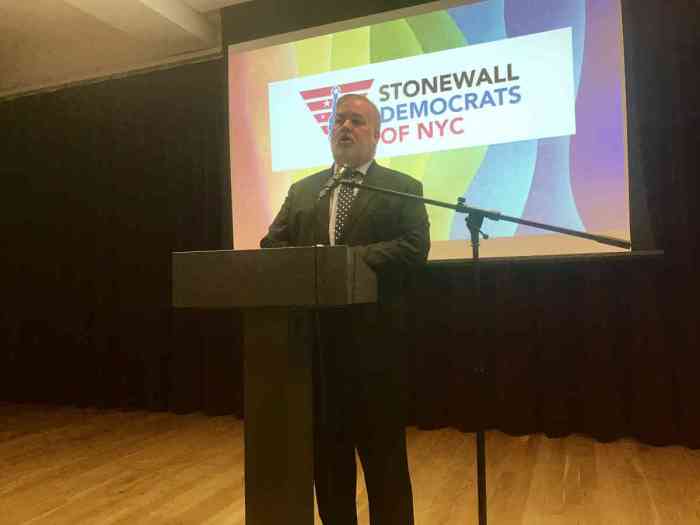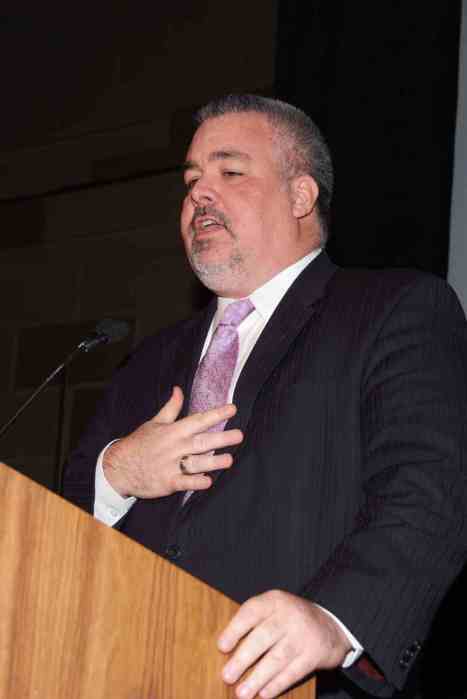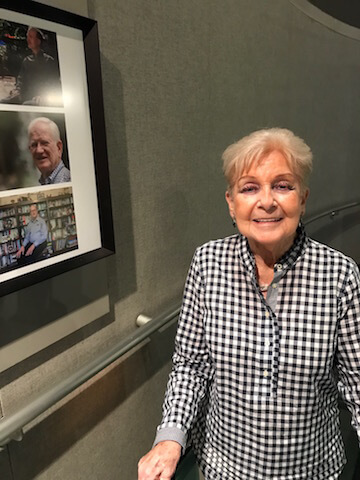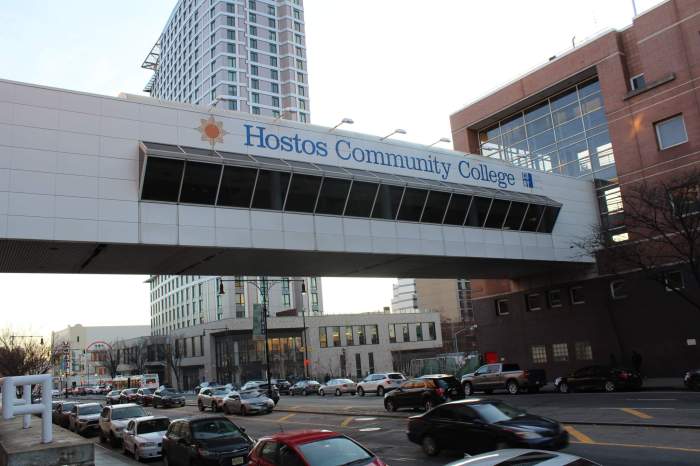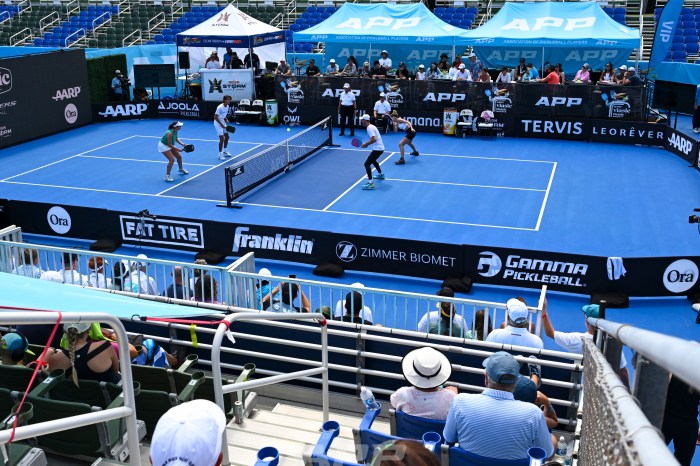City Councilmember Daniel Dromm, chair of the Education Committee. | DONNA ACETO
BY ANDY HUMM | Requirements from the city and state that the public schools address bullying, teach about AIDS and sex, and integrate LGBTQ issues into that curriculum have been passed with great fanfare over the years, but implementing these mandates has fallen well short, according to a recent survey of students by youth activists from the New York Civil Liberties Union.
While the city’s Department of Education says it remains committed to these programs, officials there would not release compliance data to Gay City News. They will, however, have to face a City Council hearing on Intro. 1028, Speaker Melissa Mark-Viverito’s proposal for a task force to address sex ed issues, on April 19.
The NYCLU’s Teen Activist Project released its survey results on March 21, finding that “many students do not receive sex education until their senior year,” despite the fact that it is required in all middle and high school grades as part of health class.
“LGBTQ identities and relationships are often unaddressed, with just 36 percent of [302] students surveyed having learned about LGBTQ issues and relationships,” the group said in a release.
City schools offer no data on health education, numbers showing virtually no reports of harassment
Another survey of 278 students found that despite the 2010 Dignity for All Students Act (DASA) state mandate that all schools have a designated staff member trained to deal with complaints of bullying — including that based on sexual orientation and gender identity or expression — “many students are unable to identify the DASA coordinator at their school or are unfamiliar with the law itself.”
Jackson Heights City Councilmember Daniel Dromm, the out gay chair of the Education Committee, said he held a hearing “a year ago on the provision of sex education and it wasn’t happening frequently enough. They didn’t have the numbers, and there was no accountability.”
His committee will take up Intro. 1028 — which would establish a Sexual Health Education Task Force, appointed by the mayor in consultation with the Council speaker and including an expert in LGBTQ health education — on April 19 at 1 p.m. at City Hall. The hearing will review curricula and implementation from kindergarten through 12th grade, make recommendations for expanding implementation as well the integration of education for LGBTQ students and about same-sex relationships.
The committee will also consider Resolution 1415, calling on the State Education Department to “convene a task force to assess the cultural relevance of state learning standards across subject areas” in all grades “and explore the grounding of standards in core content that challenges racism, ableism, and sexism and is LGB and TGNC [transgender and gender non-conforming]-affirming.”
Asked to respond to the NYCLU survey results, Toya Holness, press secretary at the city’s Department of Education, wrote in an email, “We’re dedicated to providing every student, regardless of gender or sexual orientation, with a high-quality education in a safe, supportive, and inclusive learning environment. As part of this commitment, we require comprehensive health education, which includes topics on sexual health in middle and high school.”
Asked for compliance data to back up that commitment, Holness wrote that sex education data was “public” but did not provide a link to it. She said DASA data was also public, but when asked about the lack of reporting of incidents by students, she wrote, “In order to ensure that all students are provided with a safe, supportive, inclusive, and equitable learning environment, we have explicit protocols and robust training programs in place which require that all incidents are reported, investigated, and appropriately addressed.”
Holness did provide a link to bullying and harassment incidents in city schools collected as required by DASA. The data is striking. Of the 1,800 reporting, most reported no such incidents at all in the 2015-16 school year and no school reported more than a few. One charter school, Excellence Girls in Brooklyn, reported 51 incidents but that was an extreme outlier in a spreadsheet dominated by zeroes. As my “Gay USA” colleague Ann Northrop, a former AIDS and sexuality educator at the Hetrick-Martin Institute, observed, bullying doesn’t occur a couple of times a year in every school but a couple of times every minute.
Jake Martinez, the Teen Activist Project coordinator for the NYCLU, told Gay City News, “We’ve heard from students that they don’t report [harassment] because they are too afraid,” and LGBTQ students have an added concern that their parents will be contacted if they report it. He believes the proposed city task force “could be helpful.”
Some schools, Martinez said, “do have good programs set up” to address the requirements of DASA” and “build positive relationships” among students. But he invited students whose complaints of harassment are not being addressed to contact the NYCLU directly at 212-607-3300 or go online to nyclu.org and click on “Legal Help.”
Where are students getting their sex education?
“Over half said their information was from their friends,” Martinez said. “Secondarily, they are going online. Eleven percent surveyed said they had no one to ask.”
Is the information students are getting accurate? That is not something the survey assessed.
State Assemblymember Daniel O’Donnell, the lead sponsor of the state Dignity for All Students Act. | DONNA ACETO
The state’s failures on AIDS education and implementation of DASA led out gay Assemblymember Daniel O’Donnell, an Upper West Side Democrat and DASA’s lead sponsor, to write Education Commissioner MaryEllen Elia in September to press her to step up training for staff to develop “positive, inclusive school culture,” things he noted were found lacking by CUNY’s Queering Education Research Institute in its report on the law’s implementation. O’Donnell also cited a report from trainers from the Pro Bono Dignity Implementation Task Force that “found that the greatest area of confusion and most number of questions from the audience were on LGBT issues, and especially transgender issues.”
O’Donnell urged the commissioner and the state Board of Regents to replace the “inadequate six-hour pre-serve requirement” of training for staff “with a full semester course that places the social patterns of harassment, bullying, and discrimination in an appropriate context of multicultural education.” He also wants the HIV/ AIDS education requirement amended to require “current medically accurate information about the nature of the disease.”
Commissioner Elia responded to O’Donnell on February 7, acknowledging that the current training on DASA may be inadequate and promising to “re-establish the task force” to make recommendations to the Regents on “the amount of training as well as the quality and content of current DASA curriculum.” She also agreed that the 1987 HIV/ AIDS education requirement “needs to be updated” and “modernized.”
Questions remain for both city and state education officials, and perhaps the Council, at the April 19 hearing, can get some answers Gay City News could not — specifically, (1) whether there is any qualitative assessment on whether students are acquiring the knowledge they need about sexuality and LGBTQ issues in age-appropriate lessons; (2) whether the city Department of Education still has a city and state requirement that six AIDS lessons be taught annually in every grade, and, if so, whether there are data on schools’ compliance and qualitative assessments on whether students are learning what they need to know about HIV/ AIDS; and (3) whether free condoms are still being made available in every high school and, if so, whether there is data on that and on students being made aware of this availability.
Complying with mandates is the least of it. The schools also need to determine whether or not their educators are becoming effective at creating supportive learning environments free of bullying and harassment and educating students who understand sexuality and its joys and risks enough to lead fulfilling lives while avoiding serious sexually transmitted infections.
Dromm, a former elementary school teacher in Queens who has made the advancement of LGBTQ issues in the schools a priority, said, “One of my frustrations as chair of the Education Committee is that I can’t tell people what to do, but I can draw attention to it.”
O’Donnell said he was “incredibly proud” when he passed DASA, especially since it was the first state law to protect transgender New Yorkers. In an email, he wrote of his efforts to “ensure its proper implementation,” including a 2015 symposium with education experts at Hunter College’s LGBT Social Science & Public Policy Center to assess its effectiveness.
“We reached the same conclusion as NYCLU’s survey: the proactive and preemptive goals of DASA are not being effectively carried out,” O’Donnell wrote. “DASA is intended to not only require reporting of instances of bullying, but to more importantly proactively prevent bullying and create inclusive school environments. As such, Commissioner Elia and I are working on improvements to DASA, such as including a three-credit course in diversity training as part of teacher certification requirements, so that teachers are better equipped to incorporate diversity in their classroom and actively prevent bullying.”




























